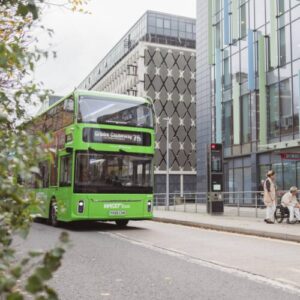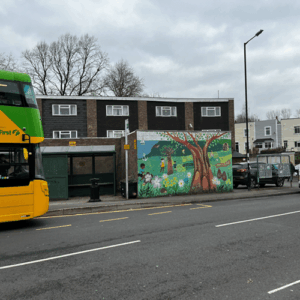
Future of bus services in region set out in more detail
Future of bus services in region set out in more detail.
Many developed nations are in the grip of an obesity epidemic with far reaching consequences for society. Nearly one in four adults in England is obese and rates have trebled since 1980. Obese people are at significantly higher risk of ill-health and early death from a range of chronic diseases, principally type 2 diabetes, hypertension, cardiovascular disease including stroke, as well as cancer. Obesity can impair a person’s well-being, quality of life and ability to earn. It has been estimated that nearly 60% of the UK population could be obese by 2050 on current trends. The economic implications are startling. By 2050, a seven-fold increase in the direct healthcare costs of overweight and obesity is anticipated, with wider costs to society reaching over £45.5 billion (at 2007 prices).1
Travel behaviour choices impact on body weight. Studies from across the world report an association of time spent in cars increasing risk of weight gain in contrast to time spent using active travel modes. In the UK a significant transfer from walking to car use has occurred over the past three decades as car ownership has risen. Comparing miles walked per year of main car users with those of adults in car-free households reveals a ‘loss’ of calorific expenditure through transferring from walking to main car user. Over a decade body weight could increase by 1 stone 13lbs, enough to move from ‘healthy’ to ‘overweight’ and a slide into obesity which tends among adults to occur over such a timeframe.2
Key findings from the literature are that:
Conflict of interest declaration: Co-author of reference 7 report.
1 Foresight, 2007 Tackling Obesities: Future Choices – Project Report. London: Government Office for Science.
2Davis, A., Valsecchi, C., Fergusson, M. 2007 Unfit for purpose: How car use fuels climate change and obesity, London:
Institute for European Environmental Policy.
3Bassett, D., Pucher, J., Buehler, R., Thompson, D., Crouter, S. 2008 Walking, cycling, and obesity rates in Europe,
North America and Australia, Journal of Physical Activity and Health, 5: 795-814.
4Frank, L., Andresen, M., Schmid, T. 2004 Obesity relationships with community design, physical activity, and time
spent in cars, American Journal of Preventive Medicine, 27(2): 87-96.
5 Ibid.
6 Bell, C., Ge, K., Popkin, B. 2002 The road to obesity or the path to prevention: Motorised transportation and obesity in
China, Obesity Research, 10(4): 277-283.
7 Wen, L., Orr, N., Millett, C., Rissel, C. 2006 Driving to work and overweight and obesity: findings from the 2003 New
South Wales Health Survey, Australia, International Journal of Obesity, 30(5): 782-786.

Future of bus services in region set out in more detail.

January marks a milestone for Kids Go Free, the popular regional offer providing free bus travel for under-16s in the...

Many of the West’s bus passengers are seeing improvements to bus information across our region, with around 150 new information...

Visitors to Bath can enjoy free Park & Ride travel from 19 to 24 January, thanks to the West of...

Plans for a new transport hub in Pill, North Somerset, are moving forward with works set to start early January...